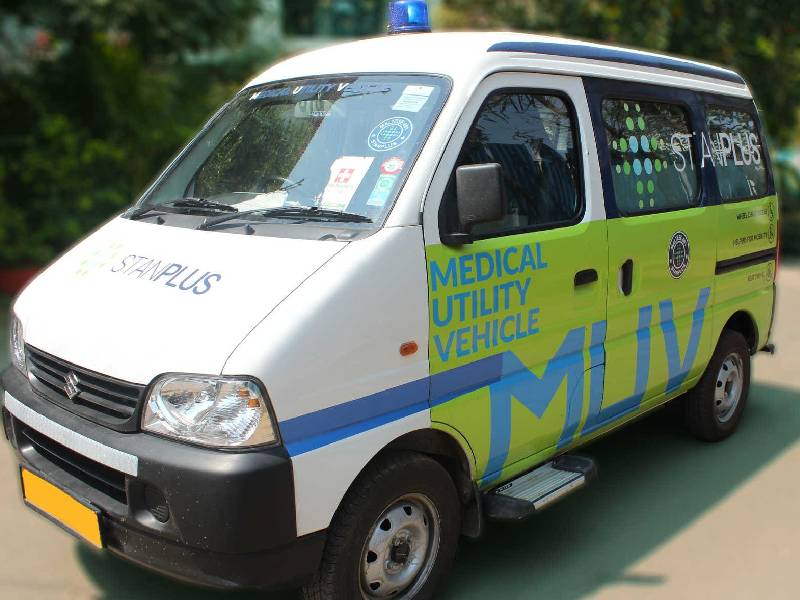Reduce GST for inexpensive service: Ambulance operators send SOS to government
By Priyali Dhingra
HYDERABAD: Private ambulance operators have urged the government to reduce the GST (Goods and Services Tax) for cost-effective services to the patients.
Leading the charge is 'Stanplus’, major ambulance service providers in the city. "To roll out a new ambulance in the market, we have to pay 28 percent GST to the government," said Prabhdeep Singh, Founder of Stanplus.
Singh's startup has been the biggest ambulance provider in the market. However, it is now drawing flak for 'overpricing' COVID services.
For a COVID patient, they charge from Rs 6000-8000. "The cost for COVID specialty ambulance is higher than usual. Plus patients have to travel to multiple hospitals looking for a bed," Singh said.
Earlier Stanplus was transporting to 5-6 patients a day. But now they cater to the maximum of two patients. "Four hours are spent on average while waiting for a bed at a government hospital. Plus there is added time of transit to different hospitals,” he said.
The company said if a comprehensive mechanism is put in a place to inform citizens about the availability of beds in particular hospital then the cost of ambulance services could come down.
"We have three workers attending one COVID patient. We have to include the budget for their safety too," Singh said.
He said seven of his employees are COVID positive and in quarantine. "The company is spending a hefty sum to keep them in isolation. Since my staff hails from a relatively poor background, they cannot isolate themselves at the premises of their 1 or 2 room homes," he said.
The company has served over 1000 COVID patients since March. It provides services in leading cities including Hyderabad, Bangalore, and Mumbai.
“There is excessive sensationalism that ambulances are charging a relatively higher sum of money. The cost of servicing a patient affected by or suspected of COVID is extremely high," he said.
Singh noted India would be better off if the government provided subsidized services to its citizens. “We catered to those left out by the government," he said.